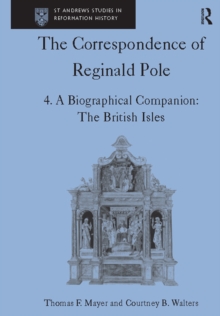
The Curse of Ham in the Early Modern Era : The Bible and the Justifications for Slavery EPUB
by David M. Whitford
Part of the St Andrews Studies in Reformation History series
EPUB
Description
For hundreds of years, the biblical story of the Curse of Ham was marshalled as a justification of serfdom, slavery and human bondage.
According to the myth, having seen his father Noah naked, Ham's is cursed to have his descendants be forever slaves.
In this new book the Curse of Ham is explored in its Reformation context, revealing how it became the cornerstone of the Christian defence of slavery and the slave trade for the next four hundred years.
It shows how broader medieval interpretations of the story became marginalized in the early modern period as writers such as Annius of Viterbo and George Best began to weave the legend of Ham into their own books, expanding and adding to the legend in ways that established a firm connection between Ham, Africa, slavery and race.
For although in the original biblical text Ham himself is not cursed and race is never mentioned, these writers helped develop the story of Ham into an ideological and theological defence for African slavery, at the precise time that the Transatlantic Slave Trade began to establish itself as a major part of the European economy during the sixteenth and seventeenth centuries. Skilfully weaving together elements of theology, literature and history, this book provides a fascinating insight into the ways that issues of religion, economics and race could collide in the Reformation world.
It will prove essential reading, not only for those with an interest in early modern history, but for anyone wishing to try to comprehend the origins of arguments used to justify slavery and segregation right up to the 1960s.
Information
-
Download - Immediately Available
- Format:EPUB
- Pages:244 pages
- Publisher:Taylor & Francis Ltd
- Publication Date:05/07/2017
- Category:
- ISBN:9781351891820
Other Formats
- PDF from £35.09
- Hardback from £145.00
Information
-
Download - Immediately Available
- Format:EPUB
- Pages:244 pages
- Publisher:Taylor & Francis Ltd
- Publication Date:05/07/2017
- Category:
- ISBN:9781351891820










